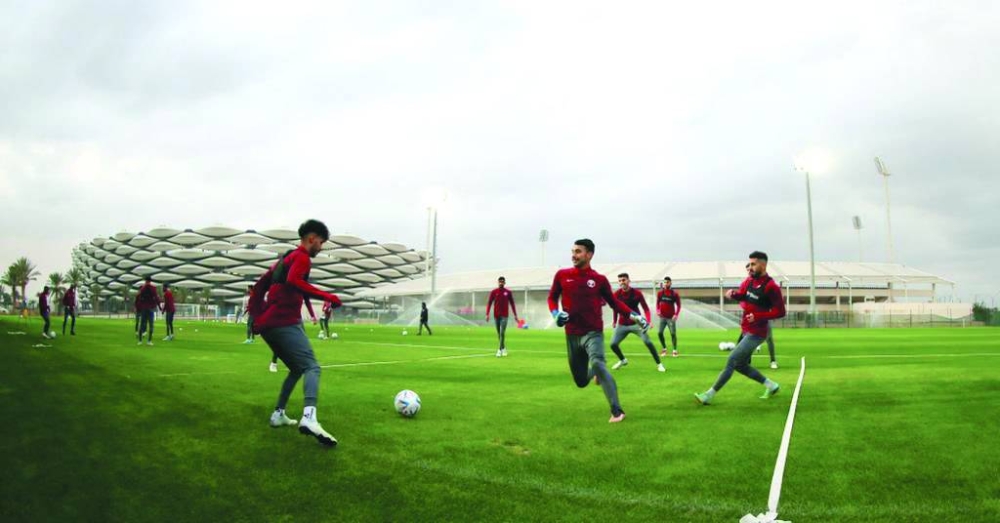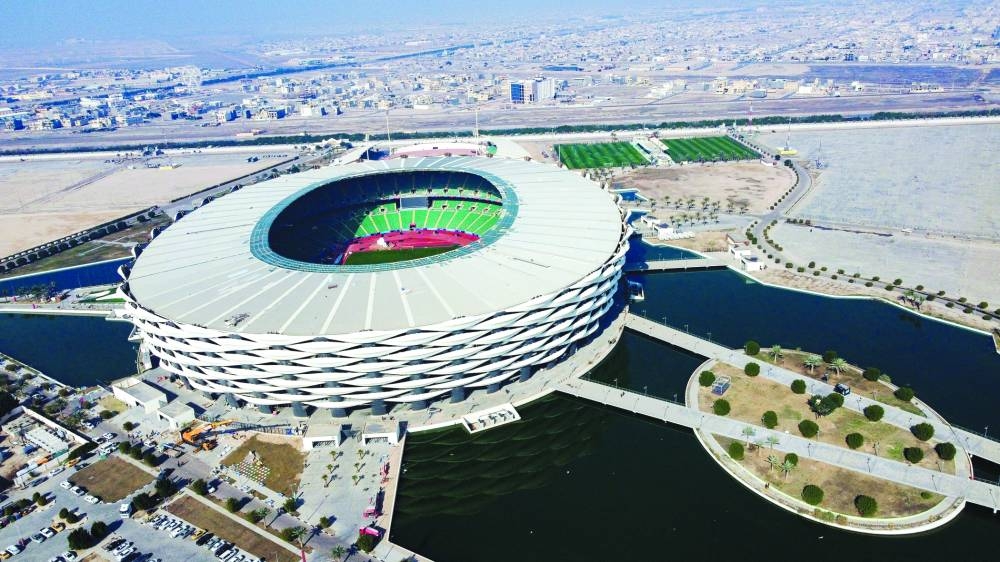Forty four years after Iraq staged the inaugural Arabian Gulf Cup in 1979, the country will host the 25th edition of the tournament in the southern port city of Basra from today. Iraq has gone through turbulent times in the last few decades with war, invasions and instability making it impossible for its own team to play at home, let alone host a major sport event.
Hence, the Gulf Cup, which was initially set to take place in December 2022 but was postponed as it was believed to be scheduled too close to the World Cup in Qatar, will be a big test for the government and football officials to show Iraq is a safe place.
Decades of conflict and upheaval in Iraq means the security situation remains fragile as it has not hosted a competitive international since before the 2003 US-led invasion. In fact, in the past two decades, just two qualifiers have taken place in the country: against Jordan in Erbil in 2011 and Hong Kong in Basra eight years later.
Murals and huge billboards have adorned the streets of Basra in the past one month with Iraqi authorities scrapping visa fees for fans entering Iraq for the competition. The move seeks to attract fans from across the Gulf region, particularly Kuwait, whose border with Iraq lies less than 50 kilometers from Basra. Ninety percent of the tickets have been sold electronically with Iraq Football Association (IFA) promising an opening ceremony that will showcase Iraq’s rich history.
Eight teams from West Asia, including two-time champions Qatar, are split into two groups with the tournament to be played at two venues: Basra International Stadium and the new 30,000-seater Al Minaa Olympic Stadium. Today, Iraq open the championship when they take on Oman, followed by Yemen facing Saudi Arabia in Group A matches. Qatar, which has sent a young team after the World Cup debacle at home, will start their campaign against 10-time winners Kuwait tomorrow, with defending champions Bahrain and the United Arab Emirates the other teams in Group B.
Iraq wants to take a leaf out of Qatar’s successful hosting of the World Cup in November and December. “Sports has become one of the most important activities in the world... of transmitting cultures and civilisations through hosting tournaments and competitions, and this is what we witnessed in Qatar’s organisation of the 2022 World Cup,” head of the competitions committee of the IFA Haider Aufi told the local media.
“It is a step forward to retain Iraq’s normal position in the fields of sport, culture and society,” added Basra Governor Asaad Al Eidani. “It is a message to the whole world that we are capable.”
The Iraqi ministry of transport announced in late December that free transportation for the Gulf Cup fans in Basra, while the country’s Prime Minister Mohamed Shia’ al-Sudani visited the tournament city to check on the preparations instructing officials to “spare no effort’ in hosting the regional competition in a befitting manner.
On the pitch, the Lions of Mesopotamia will be eyeing their third title. The team had a disappointing final round of World Cup qualification last year and there have been a string of coaches who have come and gone.
Jesus Casas – who worked as an assistant coach for Spain under Luis Enrique between 2018 and 2022 – is the latest to don the managerial hat for Iraq. Casas has called up players with plenty of experience in Hussein Ali, Dhurgam Ismail, Amjad Attwad and Gothenburg midfielder Amir al-Ammari.
“I can sense the importance of the Gulf Cup from the enthusiastic interest of the Iraqi fans,” Casas said on Thursday. “We will spare no effort to win the title. We are proud to play in front of the fans and this will help us greatly. We hope that we will be as ambitious as the fans,” the 49-year-old added.
Oman’s Croatian coach Branko Ivankovic called the tournament a ‘mini World Cup for Gulf teams. “We go into the tournament with very high ambitions. There are strong teams competing here, especially Qatar and Saudi Arabia. Oman has a young team and the tournament is a good opportunity to give them experience in facing strong teams, to build the future of Omani football,” he said.

Iraq coach Casas at a press conference.

Qatar players train in Basra on Thursday.

A view of the Basra International Stadium braces to host the Arabian Gulf Cup25, in Basra, Iraq January 3, 2023. The picture was taken with a drone. REUTERS/Essam al-Sudani

